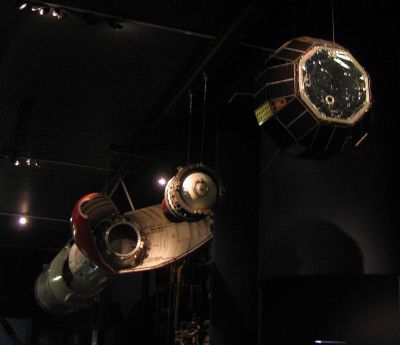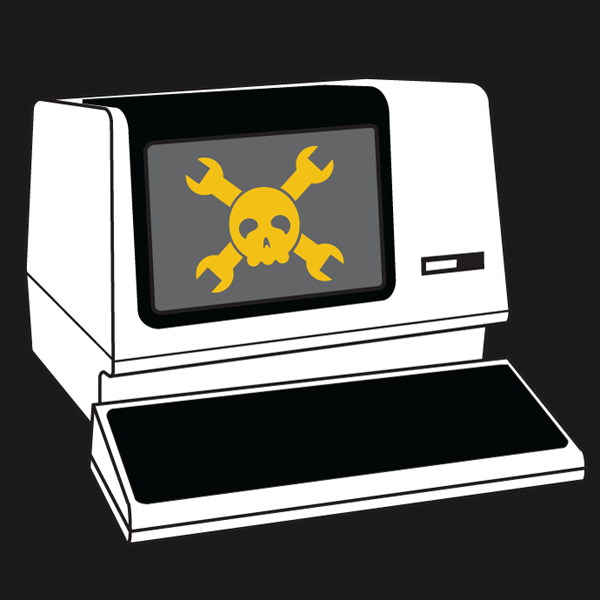In the annals of technical achievement originating from the United Kingdom there lies a forgotten success story that should have led to greater things but instead became a dead-end even before it had happened. We’re referring of course to Prospero, a British satellite that holds the honour of being the only one to have been launched on board a British-developed satellite launch platform. On the 28th of October 1971 it was launched aboard a Black Arrow rocket from the Woomera launch site in Australia and successfully entered orbit to complete its mission. When it was launched the Black Arrow program had already been canceled by the British government, with the launch proceeding only because rocket and satellite were by then already on the pad.

So the Brits became the sixth nation to develop a satellite launch capability, and promptly canned it. Prospero was a success though and remains in orbit, and was even re-activated periodically as late as the 1990s. With its fiftieth anniversary approaching in October we think it’s worth looking for to mark the occasion, and so would like to remind you of its existence and the impending anniversary. If any community can find a lost satellite, hear its call if it is still transmitting anything, and maybe even wake it up, it’s you lot. Hackaday readers never cease to amaze us with their talents, and we know that among you will be people with what it takes to find Prospero.
To help you along your way there’s a lot of information about the satellite to be found online, including the details of an unsuccessful attempt to contact it a decade ago for the anniversary in 2011, and a real-time tracker to help you find its position. Maybe some of you have a decent enough telescope to take a snap of it as it passes over, but if a radio signal could be retrieved from it that would be particularly impressive. Watch out though, you might find yourself hearing an Orbcomm satellite on the same frequency.
So if any of you fancy firing up your SDRs and pointing an antenna skywards over the next few months, we’d like to hear about your progress. It’s possible that the craft may by now be incapable of life, but if anything can be found it’s worth a try.
This isn’t the first satellite rescue attempt documented here on Hackaday. A few years back we put out the call to rescue ICE/ISEE-3.
















Found it!
https://www.youtube.com/watch?v=5UYPB2fplOE
OK, not me…
Can an update for the TLE be calculated from visuals?
Or is this not necessary because its orbit is stable enough?
Nice timing! ‘The Sky At Night’ on BBC TV Channel 2 last night (13th) had a short segment when a contributor photographed it.
Ah, I missed that!
It’s not really lost https://www.n2yo.com/satellite/?s=5580
There is a dark tale, of how the United Kingdom ended with a space program.
( https://www.theguardian.com/science/2007/aug/29/sciencenews.secondworldwar )
I’m sure that “Operation Paperclip” where the US kidnapped 1600+ Germans was just as dark.
And I’m sure that “Operation Osoaviakhim” where the Soviet Union kidnapped 2200+ German was darker still.
My grandfather was involved in the launching of Prospero and the ELDO series at Woomera. About 10 years ago I was able to see Prospero shoot through the eyepiece as it neared a good reference star to guide the telescope. Given he had died a few years before that, it was a touching moment to see something he’d launched into space still up there.
Amsat-dl.org have an excellent write up on this:
ICE/ISEE-3 Reboot Project
https://amsat-dl.org/projects/ice-isee-3/
Woomera is a funny place. My family and I passed through there in ’95 on a road trip. I was 9 at the time. We went to a cool little rocket museum there. While exploring the town we noticed that there were Americans everywhere. One place we went to looked like a community hall or information centre had a bowling alley there. Totally unexpected for a small town in the middle of the desert. At least it was a welcome relief from the scorching heat outside. You had to be carful though. It was best not to stray off the highway lest you stumble across a failed rocket that was possibly live.
I appreciate the recent influx of stories in this vein. The tech to contact hardware for which we no longer maintain complex mainframes, has been accessible for quite some time now. It’s heartening to see the enthusiasm around, “reaching out” to some of our valiant, early explorers.
Given the simplicity of early, solenoid based command and control systems, and coupled with the redundancy of certain systems, like transponders; many of these well-travelled proxies may still be faithfully reporting findings to a society no longer listening; which has long since moved on to deeper, more thoughtful science.
I have wanted to check in with Pioneer 6 for twenty years. Last we looked, several instruments were still functional, with systems nominal.